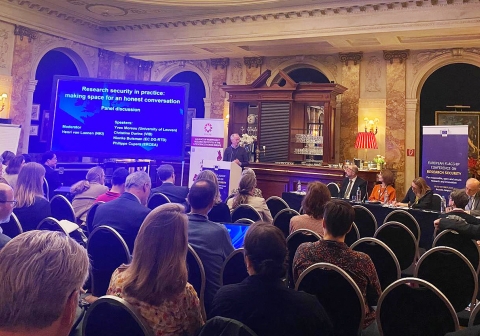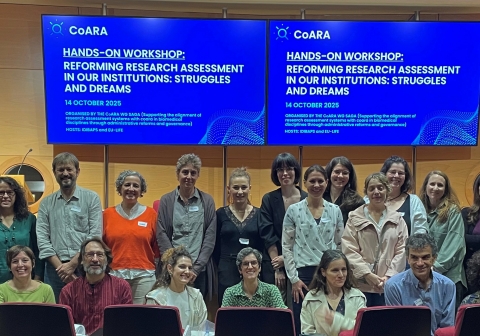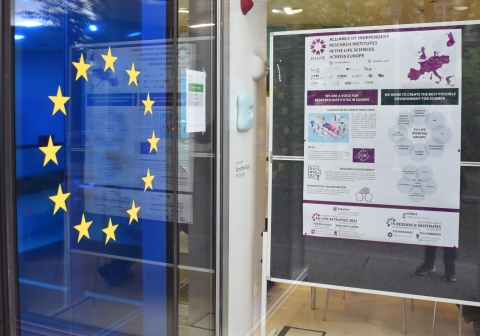Open letter to the EU Council and the European Parliament to prioritise R&I by committing an appropriate budget for Horizon Europe
Europe is at a critical crossroads. While new major societal challenges emerge, the EU is at the same time called to revisit its founding values and questioned on its role in Europe and the World. Therefore, refocusing on real beacons of the EU ideal is needed to secure and nurture the EU added value for citizens. In this context, European R&I emerges not only as a true success, but also as a real pillar of the EU ideal. Few other fields illustrate so clearly how crucial it is to have a strong EU that leverages local potential while guiding national and regional policies.
It is clear from studies on previous Framework Programmes that every Euro spent on Research & Innovation will generate roughly five-fold the investment in economic benefit, as well as improving social, health and environmental standards. However, R&I represents less than 10% of the total EU budget.
Consequently, it is time that the EU promotes R&I to a higher ranking on its list of priorities. This must be reflected in the EU’s Multi-Annual Financial Framework through an increase in the Horizon Europe budget as recommended by the Lamy report and in an earlier EU-LIFE position paper.
We therefore urge the European Parliament and the EU Council to provide Horizon Europe with 5 key assets:
- An appropriate budget: To achieve high impacts, Horizon Europe needs a commensurate budget. We were the first organisation to publicly support the recommendations in Lamy’s report to double Horizon Europe’s budget compared to H2020, to 150 Billion Euros. We stand by this and maintain our recommendation to double the budget of Europe’s Research & Innovation framework programme in order to realise its impact and address today’s global challenges.
- A balanced programme: the impact of tomorrow depends on the discoveries of today and the highest value over time comes from high-risk, open-ended excellent research. This should be the main priority of public funding such as Horizon Europe. The investment in close to the market stages will then follow from the private sector. Therefore, we recommend to double the budget for discovery research (Pillar 1), including the well-proven European Research Council and Marie Skłodowska-Curie actions (MSCA).
- Making the European Research Area (ERA) a reality: Realising ERA and advancing in open science including gender equality cannot fall solely on the shoulders of individual researchers, innovators or projects. Excellent R&I needs a healthy R&I ecosystem that in turn needs strong institutions with international standards. EU-LIFE strongly supports the policy that European framework programmes should not substitute national or regional investment and measures should be adopted to incentivise prioritisation of R&I in Member States’ budgets aiming at 3% GDP at least. However, national incentives cannot fully accomplish international standards alone and a pan- European push is needed through Horizon Europe.
- Addressing knowledge transfer: Building a proper research ecosystem that efficiently catalyses translation of knowledge is essential since the path to innovation is not linear and includes several feedback loops. The true challenge is to actively assist researchers with identifying and enabling commercial and/or social use of their findings.
- Realistic impact and collaborative approaches: Innovation provides solutions based on knowledge. Solutions without new knowledge are not innovation; they are merely implementation. The role of open-ended research within multi-sectoral collaboration must be nurtured. Therefore, expected timing of impact of research outputs in Horizon Europe should be realistically adjusted to a longer timescale and its definition broadened beyond economic competitiveness to include wider social impact.
Likewise, because names set priorities, we also call for the inclusion of “Research” in the name of the recently created portfolio “Innovation and Youth”.
Barcelona, 23rd September 2019



